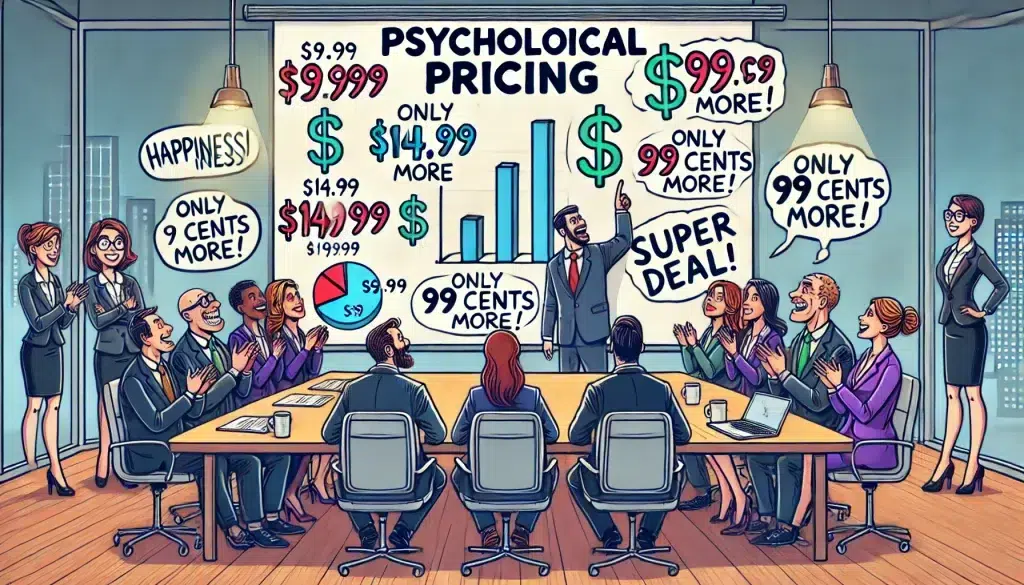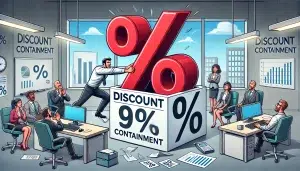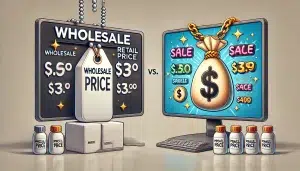
What Is Psychological Pricing
Psychological pricing is a strategic approach used by businesses to influence consumer behavior and purchasing decisions through carefully crafted price points.
This powerful technique taps into the subconscious mind of shoppers, leveraging cognitive biases and emotional triggers to make products appear more attractive or valuable.
Understanding Psychological Pricing
At its core, psychological pricing is about presenting prices in a way that appeals to consumers’ emotions and perceptions rather than their rational decision-making processes.
This strategy is widely used in both traditional retail and e-commerce settings, with the goal of increasing sales and maximizing profits.
Key Techniques
- Charm Pricing
Charm pricing involves setting prices just below a round number, typically ending in .99 or .95. For example, pricing an item at $19.99 instead of $20.00. This technique creates the illusion that the product is significantly cheaper, even though the difference is minimal. - Anchoring
Anchoring is the practice of presenting a higher price point first, making subsequent lower prices seem more appealing. This technique works by setting a reference point in the consumer’s mind, influencing their perception of value. - Odd-Even Pricing
Odd pricing (e.g., $9.99) is perceived as a promotional price, while even pricing (e.g., $10.00) is associated with higher quality. Businesses can use this knowledge to align their pricing with their brand positioning. - Bundle Pricing
Bundle pricing involves offering multiple products or services together at a discounted rate. This strategy can increase the perceived value for customers while boosting overall sales volume. - Prestige Pricing
Also known as premium pricing, this strategy involves setting prices higher to convey a sense of luxury or exclusivity. It’s particularly effective for brands targeting high-end markets.
The Psychology Behind the Numbers
Research has shown that consumers process prices in unique ways:
- Left-digit effect: Consumers tend to focus on the leftmost digit, perceiving $3.99 as closer to $3 than $4.
- Weber’s law: Small differences in low prices are perceived as more significant than the same differences in high prices.
- Price memory: Shoppers often remember prices as being lower than they actually are, especially for frequently purchased items.
Cultural Considerations
It’s crucial to note that the effectiveness of psychological pricing can vary across cultures. What works in one market may not be as effective or might even be considered unethical in another. For instance:
- In some Asian countries, prices ending in 8 are considered lucky and may be more effective than those ending in 9.
- Certain cultures may view odd pricing as deceptive, preferring straightforward, rounded numbers.
Implementing Psychological Pricing in E-commerce
For online retailers, implementing psychological pricing strategies can be particularly effective:
- A/B Testing: Experiment with different price points and presentations to determine what resonates best with your target audience.
- Dynamic Pricing: Utilize AI and machine learning algorithms to adjust prices in real-time based on demand, competition, and other factors.
- Personalized Offers: Leverage customer data to present tailored pricing options that appeal to individual preferences and behaviors.
Psychological Pricing Examples in Action
- Apple‘s product pricing often ends in 9 (e.g., $999 for an iPhone), leveraging charm pricing even in the high-end market.
- Amazon frequently uses bundle pricing, offering “Frequently Bought Together” suggestions to increase average order value.
- Subscription services like Netflix use odd pricing ($15.49/month) to create the perception of precise value calculation.
FAQs
Q: Is psychological pricing ethical?
A: When used transparently and without deception, psychological pricing is generally considered an acceptable marketing practice. However, businesses should always prioritize honesty and value delivery.
Q: How effective is charm pricing?
A: Studies have shown that charm pricing can increase sales by up to 24% compared to rounded prices. (Source: Gumroad’s pricing experiment)
Q: Can psychological pricing work for high-end products?
A: Yes, techniques like prestige pricing and anchoring can be particularly effective for luxury items or premium services.
For more in-depth information on consumer psychology and pricing strategies, consider exploring these authoritative resources:
In conclusion, psychological pricing is a powerful tool that, when used ethically and strategically, can significantly impact consumer behavior and business success.
By understanding the underlying principles and implementing them thoughtfully, businesses can create pricing strategies that resonate with their target audience and drive growth in the competitive digital marketplace.




